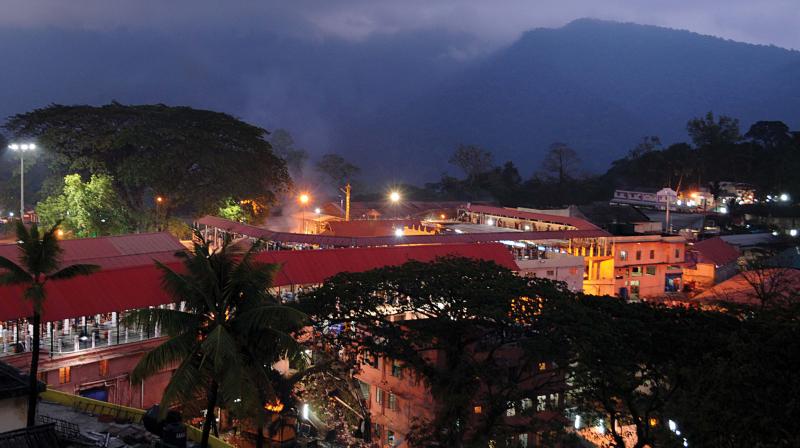Safer water for Sabarimala

Kochi: With a view to ensure quality drinking water to lakhs of pilgrims, the Pollution Control Board (PCB) is setting up a permanent Water Quality Analysis Laboratory at Sabarimala. “The services will be made available from this pilgrimage season itself to ensure that drinking water provided to pilgrims is of standard quality. Water samples from ‘RO’ plants and kiosks at Sannidhanam, Pamba and Nilackkal will be collected and tested at the laboratory on a daily basis to determine the level of coli-form bacteria,” said K Sajeevan, Chairman, Kerala State Pollution Control Board.
The PCB is already publishing level of coli-form bacteria in Pamba river on a daily basis. Also samples of treated water from new sewage treatment plant at Sannidhanam, two points at ‘bhasmakulam’ and five points at bathing ghats in Pamba are being inspected daily. “Upon finding high level of coli-form bacteria, we immediately alert the KWA and TDB officials and ask them to take remedial measures such as imposing restriction on waste disposal. Also for benefit of pilgrims, we’re displaying test results at our camp offices in Pamba and Sannidhanam on a daily basis,” the official said.
Meanwhile, the high-level empowered committee gave the nod for construction of a five MLD capacity sewage treatment plant at Pamba. “The tenders have already been floated. It’s been set up above the existing sewage treatment plant. Upon completion of its construction, the existing semi functional one will be decommissioned and a new five MLD plant will be set up there,” Sajeevan said.
Meanwhile, the PCB has asked the Travancore Devaswom Board to connect all sewage network lines to the treatment plants.
“Currently the sewage wastes are disposed to the open air at many places and our efforts will be fruitful only if all the network lines are connected to treatment plants,” he said. According to the PCB report, the presence of E-Coli bacteria at Pampa river in January this year was 75, 000 MPN / 100 ml of water as against 8000 MPN/ 100 ml the previous year. The norm is that if the E coli presence is above 2500 MPN/ 100 ml, it’s not fit for drinking.

